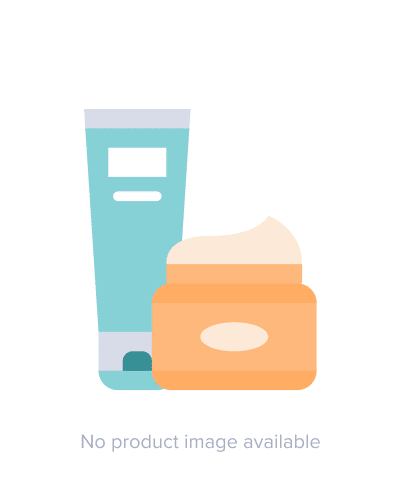Doesn't work for:
based on ingredients and %- Anti-blemish
- Cleansing
Can it cause trouble?
- Irritation risk: high
- Comedogenic risk ingredients: 0
Key actives


Does not work for
Anti-blemish
What does the product description say?
Best for clogged pores, poor circulation, and congested complexions.
Source: N/A
Effective ingredients missing or their concentration is too low.
Can be helpful in reducing inflammation in skin, including inflamed acne. It can be irritating
Cleansing
What does the product description say?
LUSTRA Illuminating Cleansing Essence
Source: From product name
This product does not seem to contain cleansing agents and might not be able to remove dirt and oil efficiently.
How honest is this product?
| Promise | Can it deliver? |
|---|---|
| Cleansing | |
| Anti-blemish |
Total Promises Fulfilled score: 0/100.
Potential irritants
Comedogenic ingredients
No comedogenic ingredients detected
User reviews (0)
Averages from community submissions.
No reviews yet for this product.
Be the first to share your experience!
Tried this product?
Help capture what the ingredient list can't—texture, finish, pilling, scent, and more. Answer what you can, skip the rest.
Takes ~30 seconds.
Reviews are shown in aggregate. No personal details.
| Product | Similarity | Price | Irritancy |
|---|---|---|---|
 in fiore LUSTRA Illuminating Cleansing Essence | Current | - | |
 MILK MAKEUP Hydrating Oil | 31% | $-1.00 | |
 Erno Laszlo Phelityl Pre Cleansing Oil | 30% | $32.00 | |
 Avant Skincare Advanced Bio Restorative Superfood Facial Oil | 29% | $85.00 | |
 Ecooking Multi Oil | 22% | $20.00 | |
 Aromatherapy Associates Renewing Rose Hydrating Body Gel | 12% | $32.00 |
Key Actives
Potential irritants
Comedogenic ingredients
We couldn't find any comedogenic ingredients in this product
All ingredients
Ingredient list view
Vitis vinifera seed oil, Simmondsia chinensis seed oil, Ricinus communis seed oil, Persea gratissima oil, Citrus aurantium bergamia fruit oil, Jasminum sambac flower oil, Boswellia carterii oil, Helianthus annuus seed oil, Rosmarinus officinalis leaf extract, Cupressus sempervirens leaf oil, Anthemis nobilis flower oil, Arnica montana flower extract, Unknown, Chamomilla recutita extract, Limonene, Linalool, Geraniol, Eugenol, Citral, Benzyl benzoate, Citronellol
- Final report on the safety assessment of Ricinus Communis (Castor) Seed Oil, Hydrogenated Castor Oil, Glyceryl Ricinoleate, Glyceryl Ricinoleate SE, Ricinoleic Acid, Potassium Ricinoleate, Sodium Ricinoleate, Zinc Ricinoleate, Cetyl Ricinoleate, Ethyl Ricinoleate, Glycol Ricinoleate, Isopropyl Ricinoleate, Methyl Ricinoleate, and Octyldodecyl Ricinoleate
- Castor Oil: Properties, Uses, and Optimization of Processing Parameters in Commercial Production
- Effect of ricinoleic acid in acute and subchronic experimental models of inflammation
- Safety Assessment of Citrus-Derived Peel Oils as Used in Cosmetics
- Oxidized citrus oil (R-limonene): A frequent skin sensitizer in Europe
- Air oxidation increases skin irritation from fragrance terpenes
- Effect of Olive and Sunflower Seed Oil on the Adult Skin Barrier: Implications for Neonatal Skin Care
- Topically Applied Sunflower Seed Oil Prevents Invasive Bacterial Infections in Preterm Infants in Egypt
- Effect of topically applied lipids on surfactant-irritated skin
- Impact of topical oils on the skin barrier: possible implications for neonatal health in developing countries
- Allergic contact dermatitis induced by rosemary leaf extract in a cleansing gel
- Safety Assessment of Rosmarinus officinalis (Rosemary)-Derived Ingredients as Used in Cosmetics
- Rosmarinus officinalis Extract Suppresses Propionibacterium acnes–Induced Inflammatory Responses
- Safety Assessment of Anthemis nobilis– Derived Ingredients as Used in Cosmetics
- Effects of Topical Arnica Gel on Post-Laser Treatment Bruises
- Effects of microcurrent application alone or in combination with topical Hypericum perforatum L. and Arnica montana L. on surgically induced wound healing in Wistar rats
- The seamy side of natural medicines: contact sensitization to arnica (Arnica montana L.) and marigold (Calendula officinalis L.)
- Accelerated resolution of laser‐induced bruising with topical 20% arnica: a rater‐blinded randomized controlled trial
- Annex I: Clinical evidence regarding sensitisation to individual fragrance chemicals and to natural extracts